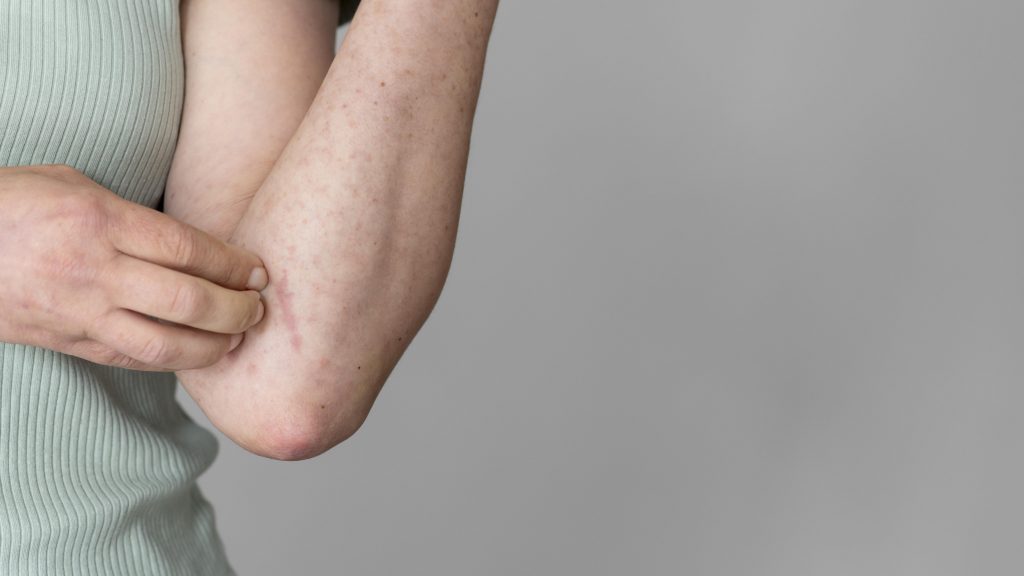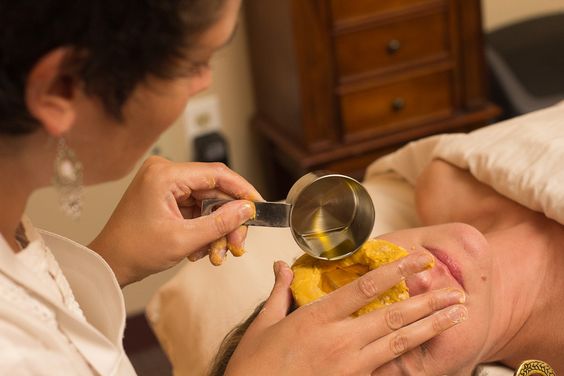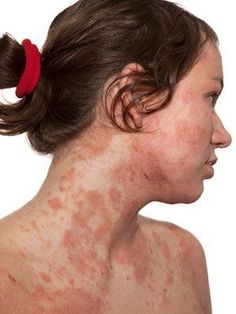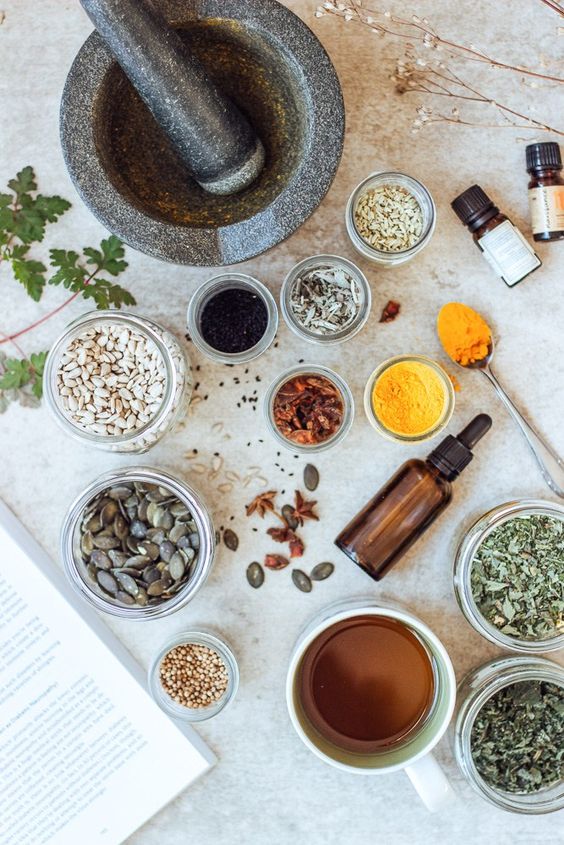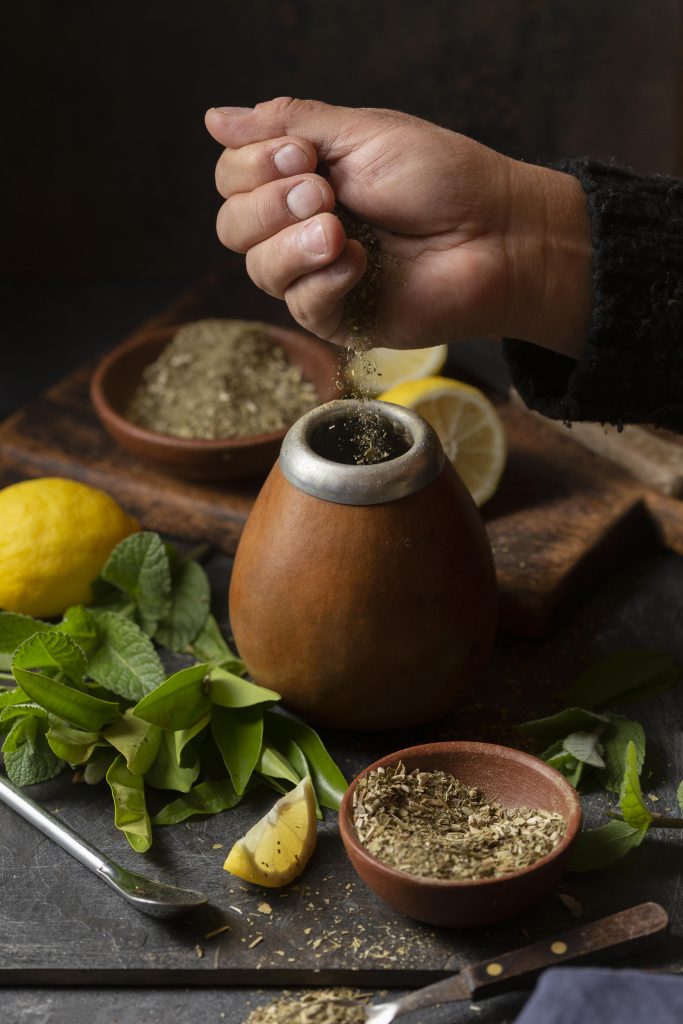Psoriasis, a chronic autoimmune disease characterised by red, scaly patches on the skin, can be physically uncomfortable and emotionally challenging. While conventional treatments exist, many people turn to Ayurveda for a holistic and natural approach to managing psoriasis. This blog explores Ayurvedic treatments and their potential to provide relief and improve quality of life.
Understanding Psoriasis
Psoriasis occurs when the immune system mistakenly attacks healthy skin cells, accelerating their growth cycle. This leads to the buildup of thick, red patches covered with silvery scales. Common areas affected include the scalp, elbows, knees, and lower back. The condition is often triggered by stress, skin injuries, infections, and certain medications.
Ayurvedic Perspective on Psoriasis

In Ayurveda, psoriasis is seen as an imbalance in the body’s doshas—Vata, Pitta, and Kapha. It is particularly associated with imbalances in Vata and Kapha, which lead to the accumulation of toxins (Ama) in the body. Ayurvedic treatment aims to detoxify the body, balance the doshas, and enhance natural healing.
Key Ayurvedic Treatments for Psoriasis
Detoxification (Panchakarma)
- Virechana (Purgation Therapy): Utilizes herbal laxatives to cleanse the body and eliminate toxins.
- Vamana (Emesis Therapy): Controlled vomiting to remove toxins from the upper gastrointestinal tract.
- Basti (Enema Therapy): Herbal enemas cleanse the colon and balance the doshas.
Herbal Remedies
- Neem: Anti-inflammatory and antimicrobial properties help soothe the skin and reduce inflammation.
- Turmeric: Anti-inflammatory and antioxidant benefits aid in reducing symptoms and promoting skin health.
- Aloe Vera: Moisturizes and soothes the skin, alleviating itching and scaling.
- Guggul: Assists in detoxification and balancing the doshas.
Diet and Lifestyle Adjustments
- Anti-inflammatory Diet: Focuses on fresh, whole foods like leafy greens, fruits, whole grains, and lean proteins.
- Avoiding Triggers: Reduces intake of foods that aggravate Pitta and Kapha, such as spicy foods, processed foods, and dairy.
- Hydration: Drinking plenty of water and herbal teas to flush out toxins.
- Regular Exercise: Yoga and walking help maintain balance and reduce stress.
Stress Management

- Meditation and Yoga: These practices calm the mind and reduce stress, a common trigger for psoriasis flare-ups.
- Pranayama (Breathing Exercises): Techniques like Anulom Vilom and Kapalbhati help balance the body’s energy and reduce stress.
Benefits of Ayurvedic Treatment for Psoriasis
- Ayurvedic treatments for psoriasis offer several benefits:
- Holistic Approach: Addresses the root cause rather than just the symptoms.
- Natural Remedies: Utilizes natural herbs and therapies with minimal side effects.
- Personalized Treatment: Tailors treatment to the individual’s unique constitution and specific dosha imbalances.
- Long-term Relief: Focuses on long-term management and prevention of flare-ups.
Conclusion
Ayurveda provides a comprehensive and natural approach to managing psoriasis, focusing on detoxification, herbal remedies, dietary adjustments, and stress management. By addressing the root causes and promoting overall well-being, individuals can achieve relief and improve their quality of life. Always consult with a qualified Ayurvedic practitioner to develop a personalized treatment plan tailored to your specific needs.
For those seeking an alternative to conventional treatments, Ayurveda offers a promising path to healing and well-being. Embracing this ancient wisdom can help individuals with psoriasis achieve better control over their condition and lead fulfilling lives.






